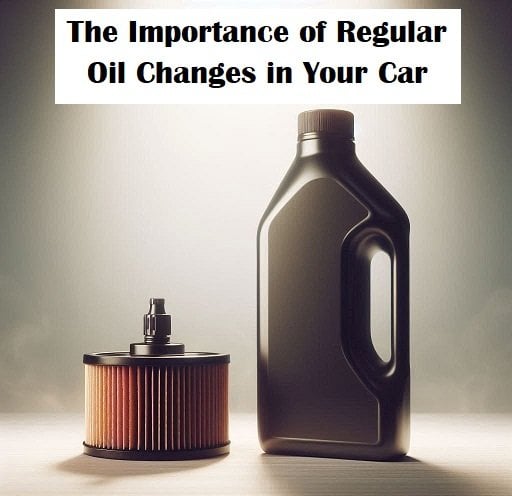Oil changes are one of the most critical aspects of car maintenance, yet they are often overlooked by vehicle owners. Regular oil changes help ensure that your car runs smoothly, efficiently, and safely. In this blog, we’ll explore the importance of regular oil changes, the benefits they provide, and how often you should have them done.
Understanding Engine Oil
Before delving into the reasons for regular oil changes, it’s essential to understand the role of engine oil in your vehicle:
- Lubrication: Engine oil lubricates the moving parts of the engine, reducing friction and preventing wear and tear.
- Cooling: Oil helps dissipate heat generated by the engine, keeping it within safe operating temperatures.
- Cleaning: Oil carries dirt, debris, and contaminants away from engine components, preventing sludge buildup and maintaining engine cleanliness.
- Sealing: Oil forms a seal between the pistons and cylinder walls, helping to maintain compression and improve efficiency.
Preventing Engine Wear and Tear
One of the primary reasons for regular oil changes is to prevent engine wear:
- Maintaining Lubrication: Over time, engine oil breaks down and loses its effectiveness. Old oil can become thick and sludgy, leading to inadequate lubrication and increased friction between engine components.
- Extending Engine Life: Regular oil changes help keep your engine in optimal condition, reducing wear and tear and extending its lifespan. A well-maintained engine can last significantly longer than one that is neglected.
Improving Fuel Efficiency
Regular oil changes can have a positive impact on your car’s fuel efficiency:
- Reduced Friction: Fresh oil provides better lubrication, reducing friction and allowing the engine to operate more smoothly. This can lead to improved fuel efficiency, meaning you’ll spend less at the pump.
- Optimal Performance: Clean oil helps the engine run more efficiently, which can translate to better acceleration and overall performance.
Preventing Overheating
Old or contaminated oil can contribute to engine overheating:
- Heat Dissipation: As oil ages, it becomes less effective at dissipating heat. Regular oil changes ensure that your engine has the cooling support it needs to operate safely, reducing the risk of overheating and potential damage.
- Avoiding Costly Repairs: Overheating can lead to severe engine damage, including warped components or blown gaskets, resulting in costly repairs. Regular oil changes can help you avoid these issues.
Maintaining Warranty Compliance
If your vehicle is still under warranty, regular oil changes are often a requirement:
- Documented Maintenance: Keeping up with oil changes can help you maintain your warranty coverage. Many manufacturers require proof of regular maintenance to validate warranty claims.
- Prevent Warranty Voids: Failing to follow the recommended maintenance schedule may void your warranty, leaving you responsible for costly repairs.
Enhancing Resale Value
When it comes time to sell or trade in your vehicle, having a documented history of regular oil changes can enhance its resale value:
- Showing Care for the Vehicle: A well-maintained car is more attractive to potential buyers. A complete maintenance record, including regular oil changes, demonstrates that you’ve taken good care of the vehicle.
- Increasing Buyer Confidence: Prospective buyers are more likely to invest in a car with a history of proper maintenance, leading to a higher resale value.
 How Often Should You Change Your Oil?
How Often Should You Change Your Oil?
The frequency of oil changes can vary based on several factors, including:
- Vehicle Type: Different vehicles have different oil change intervals. Check your owner’s manual for the manufacturer’s recommendations.
- Driving Conditions: If you frequently drive in stop-and-go traffic, tow heavy loads, or drive in extreme temperatures, you may need to change your oil more frequently.
- Oil Type: Synthetic oils often last longer than conventional oils. If you use synthetic oil, you may be able to extend your oil change interval, but it’s still essential to follow manufacturer guidelines.
Signs That You Need an Oil Change
In addition to following a schedule, be on the lookout for signs that indicate you need an oil change:
- Oil Change Light: Many vehicles have an oil change light that illuminates when it’s time for service.
- Oil Color and Consistency: Fresh oil is typically amber in color and smooth in texture. If your oil appears dark and gritty, it’s time for a change.
- Engine Noise: If you notice increased engine noise or knocking sounds, it could indicate that your oil is no longer providing adequate lubrication.
A Crucial Part of Vehicle Maintenance
Regular oil changes are a crucial part of vehicle maintenance that can save you money, extend the life of your engine, and improve your car’s performance. By staying on top of your oil change schedule and understanding the signs that it’s time for service, you can ensure that your vehicle remains in excellent condition for years to come. Don’t overlook the importance of this simple yet essential maintenance task—your engine will thank you!


